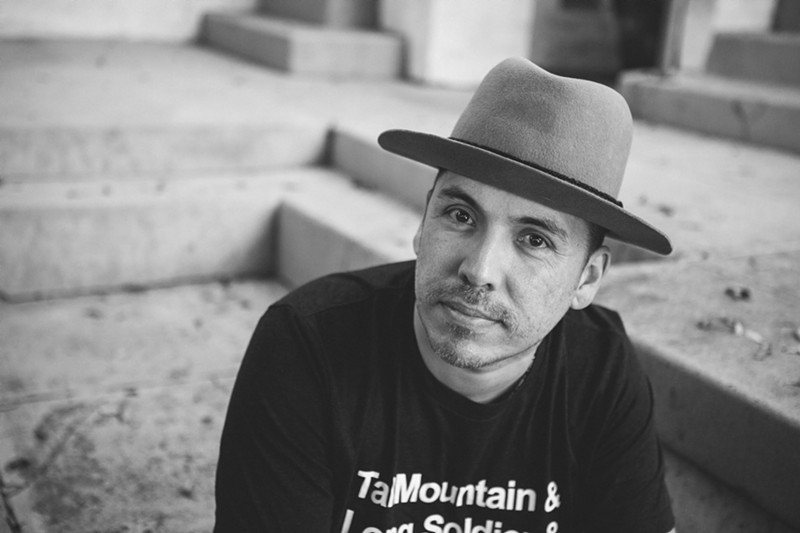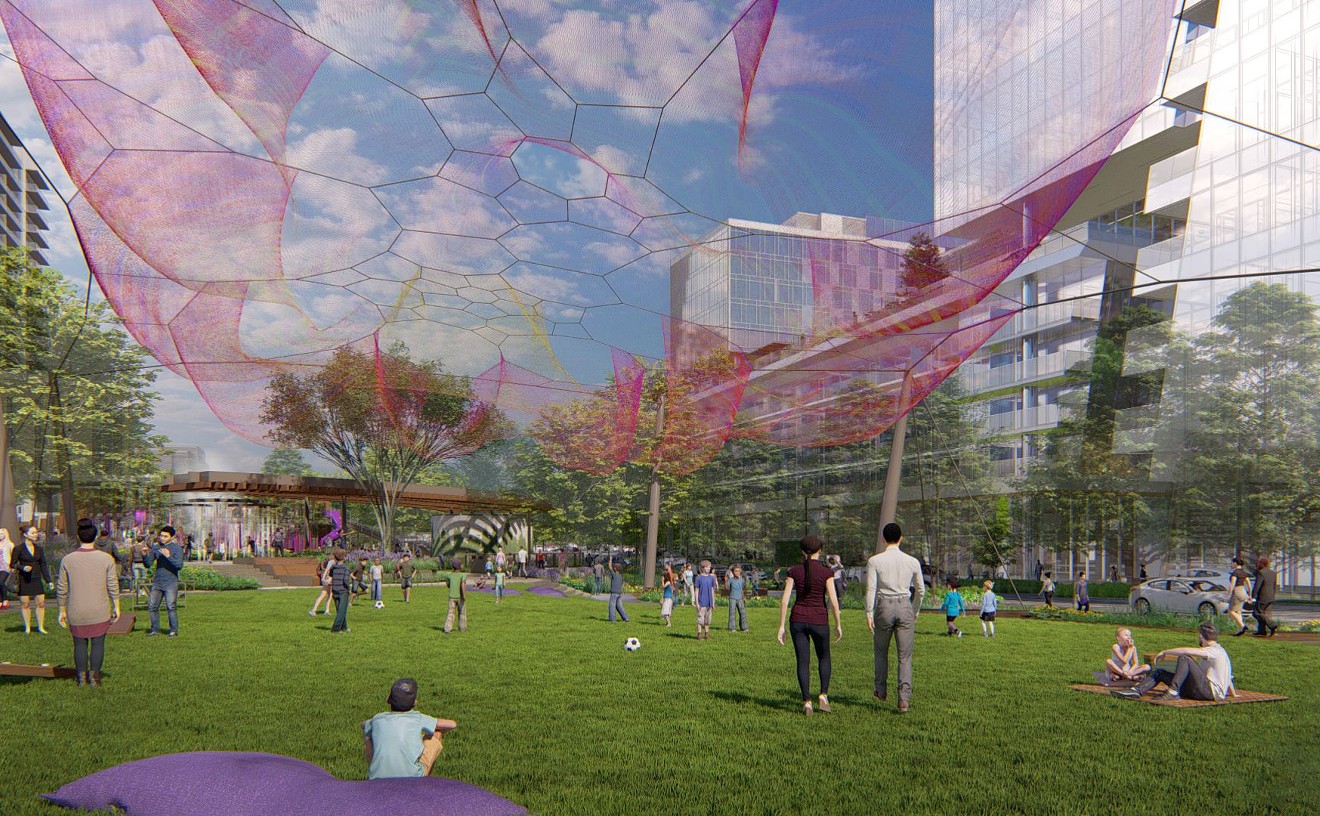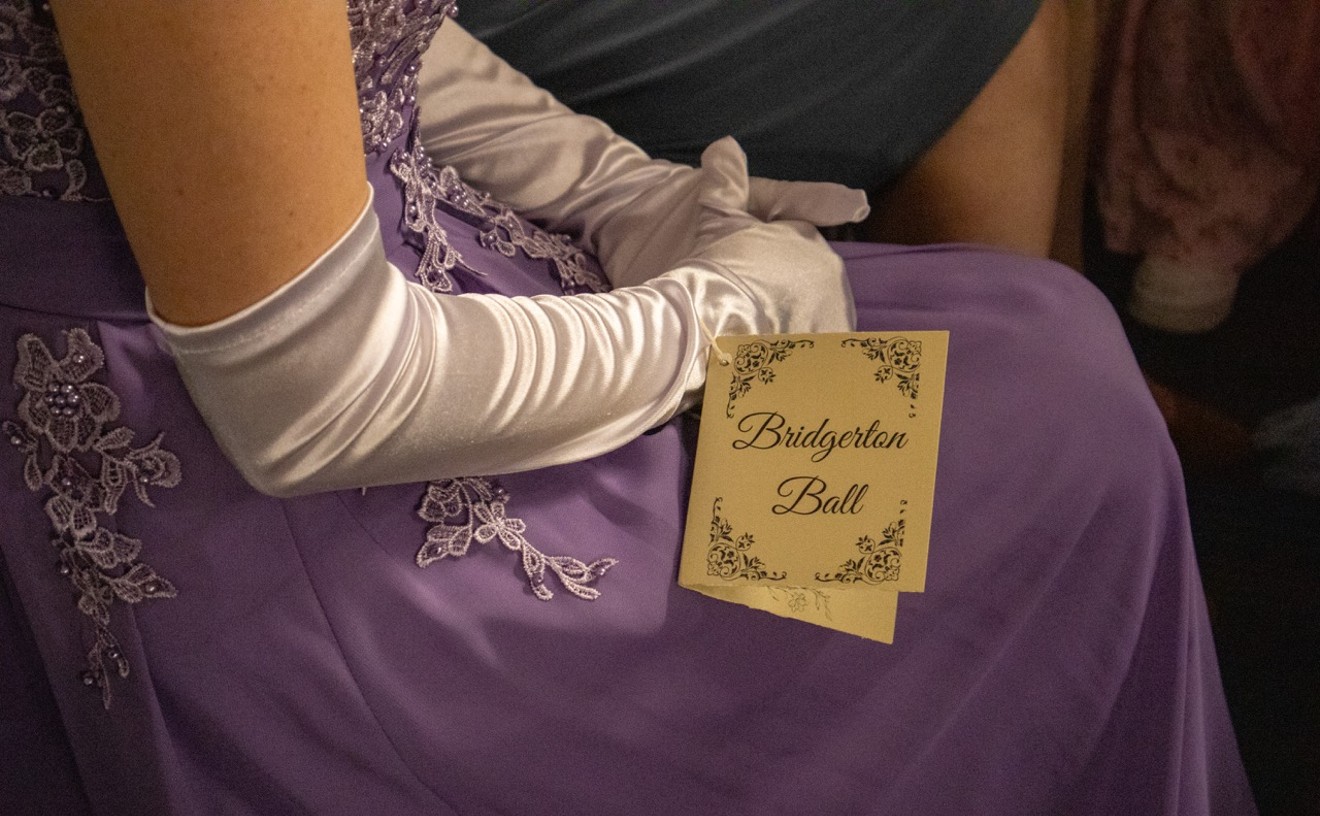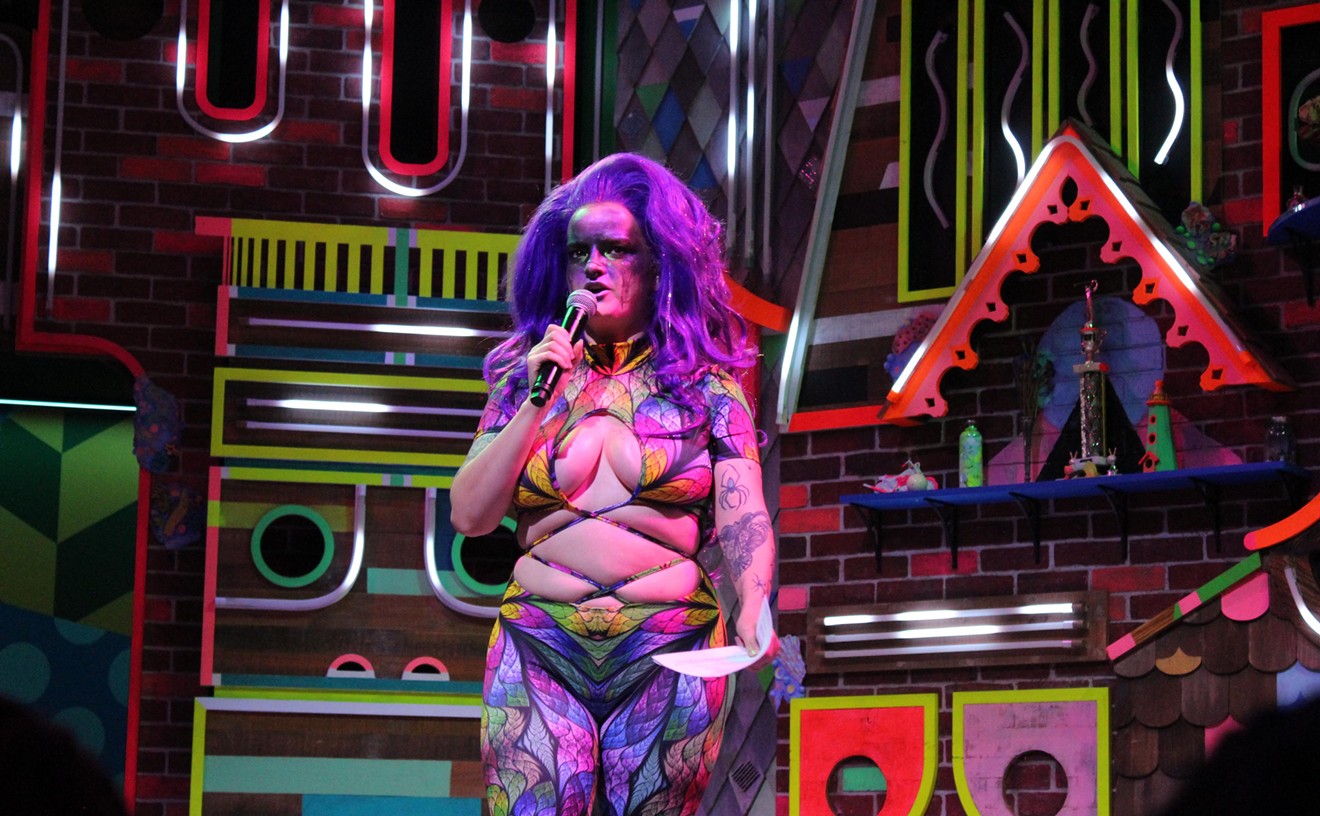When Joaquín Zihuatanejo was a child, his uncle Silastino asked, “Mijo, what do you want to be when you grow up?”
“A poet,” Zihuatanejo replied.
“A poet,” Tío Silastino repeated as if he were tasting it. “A poet. A poet. How are you going to build a house? What are you going to build, a house of poems?”
Though his uncle may not have understood, he did support his mijo’s dreams. Along with Zihautanejo’s grandfather, he had been raising his nephew in a one-bedroom dilapidated house on Henderson Avenue in Old East Dallas. One day, he brought home a box of used books, pulled out the Norton Anthology of Poetry and challenged Zihuatanejo to read the poems aloud.
“I’d been writing poetry, but didn’t think that poems were for audiences but for the page,” Zihuatanejo says.
In the evenings, Zihuatanejo would read poems aloud and watch as his uncle’s face changed and contorted with the rhythm of the words. He knew then what kind of poet he wanted to become.
For the next 40 years, Zihuatanejo, who is now in his early 50s, devoted himself to building his house of poems. His poetry has appeared in several literary journals, on the local news, cable TV and public radio and in six books of poetry collections he authored. In the early 2000s, he became a slam poetry champion for The Dallas Poetry Slam, one of the longest-running poetry organizations. Zihuatanejo won a couple of world slam poetry championships in 2009 and a few years later founded the nonprofit Dallas Youth Poets, where he spent six years inspiring young spoken word poets in Dallas and taking them to youth poetry slam festivals around the country.
He’d been working with young poets at Elevate Studios in Oak Cliff when he found out in early April that he’d been selected as Dallas’ new poet laureate, an initiative between the Office of Arts and Culture, the Dallas Public Library and independent publisher Deep Vellum Books.
Zihuatanejo had applied seven months before, after it had been suggested to him by a Dallas poet friend, Karen Mizner. She'd met Zihuatanejo at the poetry open mics she held around Dallas and had collaborated with him when she became involved with WordSpace, a Dallas nonprofit that seeks to provide public exposure for North Texas writers.
Mizner calls Zihuatanejo a team player and praises his work with youth poets. She had tried recommending him, but then realized that he had to recommend himself, so she contacted him and told him about it.
“He checked all the boxes for the criteria,” she says. “There are a lot of fine voices in Dallas, but not all of them checked all of the boxes. ... They made the right choice. He will be a fantastic representative of literary arts in Dallas, as well as on the same page on contemporary conversations to recognize women, people of color and excellence in writing and performing.”
“I’ve been talking with slam poets and anyone who would listen to me for years,” Zihuatanejo says, “and my question was, ‘Why don’t we have a Dallas poet laureate? San Antonio has one.’ It was always met with, ‘Yeah, you’re right,’ and then nothing.”
Dallas poet Christine Allison, a judge for the title of Dallas Poet Laureate, agreed with Mizner and wrote about Zihuatanejo in an April 6 D Magazine article, “In a pandemic-bruised city, with a war raging on the other side of the world and politicians gone mad, he seems to occupy an honest, quiet headspace, a space where people would want to be, whether they live in Vickery Meadow or Highland Park.”
A few days after his win, Zihuatanejo wrote in an April 10 Facebook post:
“When I was a mocoso [snot-nosed kid] my Tío Silastino told me, ‘Maybe words will be your way out of the barrio, maybe words will be your way back into the barrio to save us all.’ This is why I founded and in many instances funded Dallas Youth Poets for six years in my city, and paid myself a salary of zero dollars the entire time. I didn’t do it for the money. I did it to save as many as I could. To live up to my tío’s dream for me. But I cannot begin to tell you how it feels when the people of your city see your good work. And acknowledge you."
But not all Dallas poets agree that the new poet laureate was the best choice to represent Dallas.
Poet Rawlins Gilliland, an NPR and KERA alumnus, wrote a Facebook “novella,” as he called it, in which he outlined his own qualifications and the labor involved in the application process. He questioned in his post the two-week deadline extension and his opposition to the fact that Dallas' poet laureate did not reside in Dallas. Zihuatanejo is a longtime Denton resident. He received dozens of comments of support.
“I just wish the person who won, that someone lived in the city,” Gilliland tells the Observer.
Melissa Dease, the spokesperson for the Dallas Public Library, said the deadline was extended simply because they had only seven applicants in November. They decided to extend it from December 2021 to January 2022. Twenty-two applicants applied.
As for the residency requirement, Dease said that some poets had asked about extending the residency requirements since many of them have been forced to move to towns around Dallas due to skyrocketing rent prices and the lack of affordable housing in the city. D Magazine dropped a report on apartment and housing increases in January, showing that rent has increased 5% in Dallas with the median rent of $1,250 for a one-bedroom apartment.
According to the poet laureate application rules, which can be found on the library’s website, applicants for the position “should reside in Dallas County and demonstrate either a residential or professional relationship to the City.”
"Should" is the keyword.
Ultimately, the questions raised by Gilliland and other speak more about Dallas' inability to house its own artists, even those very artists who are qualified to publicly represent the city.
“The rules are written that they need either to live in Dallas or have a work history, influence in Dallas and work address in Dallas,” Dease says. “[Zihuatanejo] grew up in Dallas. He graduated from a Dallas high school. He started the youth poetry slam, and he has an office in Dallas where he talks with young poets.”
Zihuatanejo began chasing his childhood dream thanks to one of his young students. A teacher at the time, he’d been sharing his poems with his students in English class when one of his students finally told him: “Mr. Z, you’re always telling us to chase our dreams, but why don’t you chase your dreams and be a poet?”
“He was right to challenge me,” Zihuatanejo says.
In the early 2000s, Zihuatanejo began attending poetry slams in Dallas. At his first slam event, he signed up to read a poem, but he scratched his name from the list when he saw the poetry battle erupt onstage between two poets like rappers from Eminem’s 8 Mile and noticed the audience booing judges whenever they disagreed. "I teach English," he thought. "I’m not cool enough."
“It was an impossibly cool thing,” he says.
The next week, he went back again and took the stage and won. Then he won again and again and again.
Dallas spoken word poet Rock Baby had been hearing about “some Mexican dude” winning the slams. Zihuatanejo recalls Rock Baby saying to him, “You’re real good. These cats ain’t got no taco money and they mad at you. Keepin’ the haters at bay.”
Rock Baby and Jonathan “GNO” White became Zihuatanejo’s mentors, and he says he kept asking them questions about slam poetry. They could tell he was hungry to learn.
“He was a dynamic force with new energy and new words,” Rock Baby says of Zihuatanejo. “He was pretty dynamic, and that was the spark, and he kept on going like a rocket over the years.”
Rock Baby and Zihuatanejo traveled quite a bit together, sharing their poetry with the world. They performed individually and as part of the Dallas Poetry Slam team. Both appeared on the TV show Russell Simmons Def Poetry Jam in the early 2000s.
“In terms of Joaquin, his passion for poetry, the writing, the technicalities and authentic stories, I'm not surprised that he is the poet laureate of Dallas,” Rock Baby says. “He is definitely deserving.”
Teevee Aguirre saw Zihuatanejo performing on Def Poetry Jam and noticed that Zihuatanejo was from Dallas. A few months later, he picked up a copy of The Dallas Morning News and read an article featuring local artists who were up and coming. Zihuatanejo was on the list. Aguirre sought him out on Facebook and realized that Zihuatanejo was holding poetry workshops for teenagers in Dallas. Aguirre's daughters, Fe and Anastacia, were only 10 and 8 and not quite old enough to perform with the older kids. But he went ahead and took them to the workshop.
“I saw the benefit of it, being in love with words, handwriting and sharing their stories,” he says.
Anastacia was a shy kid, she says, and Zihuatanejo helped her to get comfortable with her voice. Her first memory of him was his willingness to visit with them and listen to her poem, which was about lettuce, when he had somewhere else to go.
“He helped us grow and taught us how to write,” says Anastacia, who is now 17. “He didn't just tell me this poetry isn't good and here is exactly how you can make it better. He really pushed me to expand my boundaries. In my mind, he's like a second father. He's become part of our family.”
Since delving into poetry slam, Zihuatanejo found himself winning the Individual World Poetry Slam competition and landing in Paris in 2009 for the World Cup Poetry Slam competition and competing against 20 national champions from around the world. He made it to the final rounds, and was the last poet to take the stage. He followed an English poet who read what Zihuatanejo calls a "phenomenal" poem about having an English lover and Spanish lover and reading the poem in English and Spanish. Then she mentioned her French lover and read that part of the poem in French. The French crowd erupted in cheers.
To win the slam poetry world cup, Zihuatanejo needed to score 30 points, a perfect score. He took the stage and read “For Jon,” a poem that involves sign language in ASL. He’d written it for one of his high school students.
He won.
Whenever he is on the road visiting young poets, Zihuatanejo often tells the story about his world cup win to encourage them to pursue their poetry dreams. He mentions that when he was a child watching soccer, he’d tell his uncle and grandfather that he would win the world cup. His grandfather would ask him for whom: Mexico or the U.S.
“I ended up with the poetry world cup instead of the soccer cup.”
As the first Dallas poet laureate, Zihuatanejo will spend the next two years presenting original poetry at schools and official city meetings and “promoting a love of letters and culture throughout the community,” as the Observer pointed out it in June 2021 when the announcement was made that the city would be looking for its first poet laureate.
At the inauguration, Zihuatanejo also received a $20,000 honorarium and a publishing contract with Deep Vellum Books. Deep Vellum director Will Evans shared in the announcement, “There is no doubt that Dallas, is, and has always been, a literary city, and the Dallas Poet Laureate will nurture new generations of readers and writers from right here in Dallas, cementing the literary arts among the city’s proudest culture offerings.”
Anastacia attended her mentor's inauguration at Dallas City Hall in early April. She recalls her poem “Blood Burden,” which he helped her to compose. It's a poem about familial pressure and about how, as we grow older, it can turn into a heavy weight on your shoulders.
“The first poem that I ever wrote was a silly poem about lettuce,” she says. “He allowed me to feel comfortable. It was so new to me. And it went from that to him helping me publish a book of poetry. He has always allowed me to be myself even though I've always been shy about sharing my poetry.”
And while he’s aware of the residency rumblings on Facebook, Zihuatanejo decided not to address them online. He’d rather stay focused on the positive that he’ll be able to create and inspire in the diverse culture of Dallas.
“We all need to share a light with each other because there is a lot of dark,” he says.
[
{
"name": "Air - MediumRectangle - Inline Content - Mobile Display Size",
"component": "18855504",
"insertPoint": "2",
"requiredCountToDisplay": "2",
"watchElement": ".fdn-content-body",
"astAdList": [
{
"adType": "rectangle",
"displayTargets": "mobile"
}
]
},{
"name": "Editor Picks",
"component": "17105533",
"insertPoint": "4",
"requiredCountToDisplay": "1",
"watchElement": ".fdn-content-body",
"astAdList": [
{
"adType": "rectangle",
"displayTargets": "desktop|tablet"
},{
"adType": "rectangle",
"displayTargets": "desktop|tablet|mobile"
}
]
},{
"name": "Inline Links",
"component": "18349797",
"insertPoint": "8th",
"startingPoint": 8,
"requiredCountToDisplay": "7",
"maxInsertions": 25
},{
"name": "Air - MediumRectangle - Combo - Inline Content",
"component": "17105532",
"insertPoint": "8th",
"startingPoint": 8,
"requiredCountToDisplay": "7",
"maxInsertions": 25,
"watchElement": ".fdn-content-body",
"astAdList": [
{
"adType": "rectangle",
"displayTargets": "desktop|tablet"
},{
"adType": "rectangle",
"displayTargets": "desktop|tablet|mobile"
}
]
},{
"name": "Inline Links",
"component": "18349797",
"insertPoint": "8th",
"startingPoint": 12,
"requiredCountToDisplay": "11",
"maxInsertions": 25
},{
"name": "Air - Leaderboard Tower - Combo - Inline Content",
"component": "17105535",
"insertPoint": "8th",
"startingPoint": 12,
"requiredCountToDisplay": "11",
"maxInsertions": 25,
"watchElement": ".fdn-content-body",
"astAdList": [
{
"adType": "leaderboardInlineContent",
"displayTargets": "desktop|tablet"
},{
"adType": "tower",
"displayTargets": "mobile"
}
]
}
]












